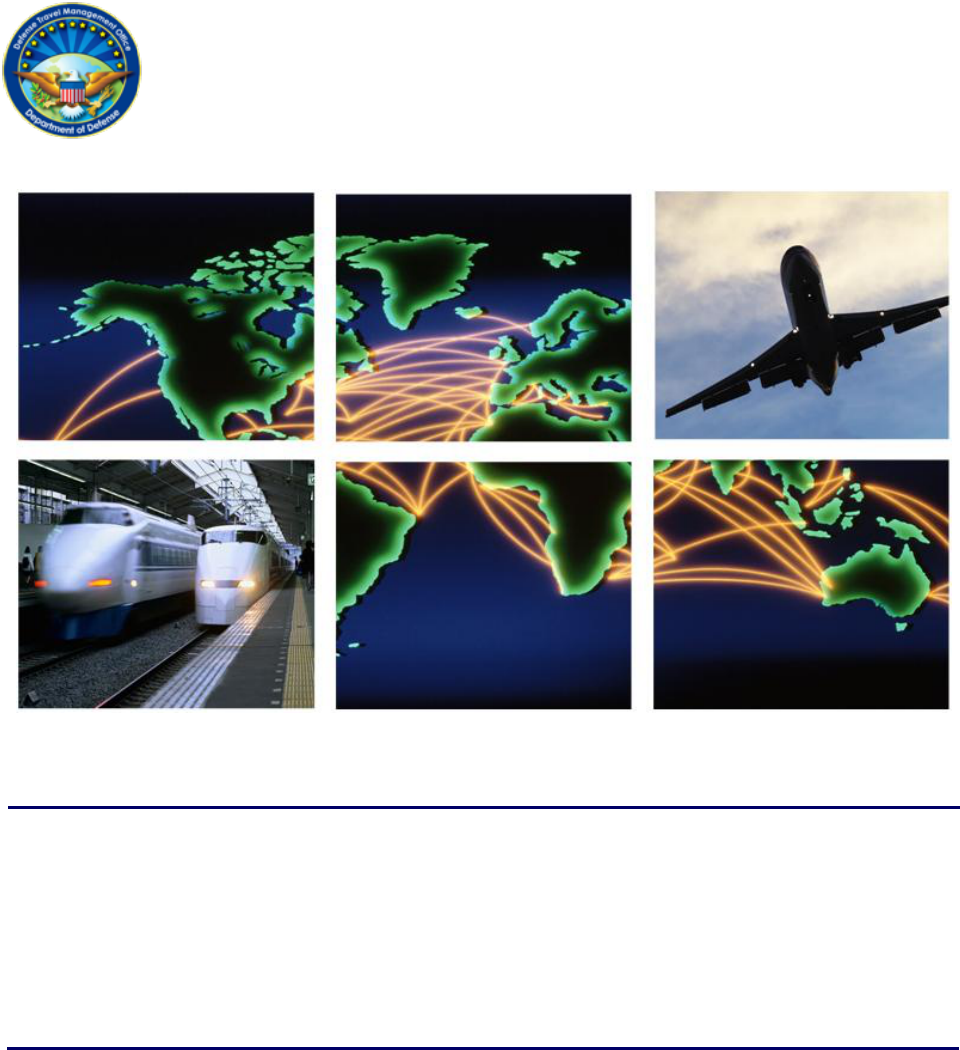
Version 4 October 2019
Defense Travel Management Office
Business Operations Plan
FY 2017 – FY 2021
D
EFENSE
T
RAVEL
MANAGEMENT OFFICE

Defense Travel Management Office, FY 2017 – FY 2021 Business Operations Plan, v4 10/2019
Defense Travel Management Office
Revision History
Revision
Number
Revision Date
Nature of Revision
Approved By
1.0
2/28/2017
Original Release
Director, DTMO
2.0
10/20/2017
Conducted annual strategic
review; added Appendix A
Director, DTMO
3.0
8/31/2018
Conducted annual strategic
review; aligned plan with the
National Defense Business
Operations Plan and the DHRA
Business Operations Plan; added
Appendix B
Director, DTMO
4.0
9/30/2019
Conducted annual strategic
review; added Appendix C
Director, DTMO

Defense Travel Management Office, FY 2017 – FY 2021 Business Operations Plan, v4 10/2019
Defense Travel Management Office
Forward
Effectively managing and reforming a $9 billion Defense Travel Enterprise demands effective strategy
development and execution. The success of the Defense Travel Management (DTMO) is rooted in our
adherence to strategic management processes and an integrated management model that combines
strategy, operations, policy, governance, programs, and systems to manage the enterprise.
The creation of DTMO in 2006 provided the Department its first enterprise view of travel management.
DTMO spent its early years organizing and staffing; consolidating services, contracts, and program
management; and establishing itself as the focal point for travel management in the Department of
Defense (DoD). In 2011 we began focusing on reforming the now recognized Defense Travel Enterprise.
From the implementation of travel efficiencies and the merger of the Joint Federal Travel Regulations
(JFTR) and Joint Travel Regulations (JTR), to the launch of our lodging and travel system pilots, we have
made strides to reform. But there is much more for us to do.
Working together with our stakeholders, partners, and customers we must continue to simplify our
travel policy and improve our business processes to maximize travel policy understanding for our
travelers. We must ensure that we fully understand our customers’ needs and adopt industry leading
technology and best practices to improve the delivery of travel services. We must maximize visibility
into DoD travel spend to better understand supplier and traveler behavior, so we can better leverage
the strategic sourcing of our travel services.
This five-year business operations plan is our blueprint to more fully realize our vision of a reformed
travel enterprise. It is a dynamic document that we will review and revise annually with feedback from
our stakeholders, partners, and customers. It is a strategy that we will execute by embracing a business
operations approach to the DoD travel enterprise, implementing performance-based management as a
driving force for continuous improvement and a results-oriented culture. We are in the business of
travel and I intend to operate from that perspective, focused on the greatest return on investment of
taxpayer dollars. We will rely on data to enable evidence based decision-making. Analysis of Defense
Travel Enterprise data empowers us to better understand travel spend, inform policy formulation,
increase policy compliance, develop program recommendations, strategically source travel services,
address customer needs, and ultimately identify cost savings and efficiencies. Analytical rigor enhances
the confidence in decisions and recommendations. The creation of business intelligence to generate
return on investment for the Department and the taxpayers underlies our strategy.
I will champion these strategic goals and objectives to meet the needs and exceed the expectations of
our customers. I am honored to lead the dedicated staff of DTMO in the execution of this business
operations plan and our quest to improving travel across the Department.
William R. Mansell, Jr.
Director
Defense Travel Management Office

Defense Travel Management Office, FY 2017 – FY 2021 Business Operations Plan, v4 10/2019
Defense Travel Management Office
Table of Contents
Introduction ............................................................................................ 1
DTMO At-A-Glance .................................................................................. 2
Products and Services ............................................................................. 2
Enterprise Management ......................................................................... 5
Customers, Stakeholders, and Partners .................................................. 5
Governance ............................................................................................. 6
Stakeholder Engagement ........................................................................ 7
Customer & Stakeholder Values ............................................................. 9
DTMO Guiding Principles ........................................................................ 9
DTMO Business Operations Plan ........................................................... 10
Strategic Alignment .................................................................................................................. 10
Mission ...................................................................................................................................... 11
Vision ......................................................................................................................................... 11
Strategic Goals, Objectives, and Initiatives ........................................... 11
Strategic Goal: Maximize Travel Policy Understanding ........................................................... 11
Strategic Objective: Simplify travel policy through simple, clear, and concise policies ........... 11
Strategic Objective: Improve DoD travel processes to reduce confusion for travelers and
travel administrators ................................................................................................................ 12
Strategic Goal: Improve Delivery of Travel Services................................................................. 12
Strategic Objective: Understand and respond to customer needs .......................................... 12
Strategic Objective: Leverage industry leading technology solutions ...................................... 13
Strategic Objective: Improve travel programs and program management ............................. 13
Strategic Goal: Optimize Cost Effective Travel......................................................................... 14
Strategic Objective: Maximize visibility into DoD travel spend to better understand supplier
and traveler behavior ................................................................................................................ 14
Strategic Objective: Adopt industry best practices to leverage strategic sourcing opportunities
................................................................................................................................................... 15
Appendix A: FY 2018 Business Operations Plan Update........................ 18
Appendix B: FY 2019 Business Operations Plan Update ........................ 20
Appendix C: FY 2020 Business Operations Plan Update ........................ 22

Defense Travel Management Office, FY 2017 – FY 2021 Business Operations Plan, v4 10/2019
Defense Travel Management Office 1
Introduction
DTMO is the single focal point for commercial travel within DoD, managing an $9.2 billion travel
enterprise. When established in 2006, DTMO focused on consolidating and improving disparate, stove-
piped travel programs and services. Through this consolidation, the Department standardized
management practices, leveraged economies of scale, reduced administrative and program costs, and
began working toward a common set of goals. By 2011, DTMO began shifting the focus to explore travel
and allowance reform opportunities to streamline processes, simplify rules, leverage current
technologies, and reduce the overall cost of travel without impairing DoD’s mission. Our
accomplishments over the last five year plan made travel policy less onerous and produced strategic
initiatives that have provided significant savings and return on investment. Highlights include:
• Implemented and expanded the Integrated Lodging Program Pilot designed to assist the
Department in determining the best approach for providing quality government (DoD) and
commercial lodging with the goal of achieving reduced rates, better services, and greater safety
and security for the traveler.
• Established the DoD Travel Policy Compliance Program to comply with Congressional mandates
including the Improper Payments Elimination and Recovery Act. This initiative helps ensure
travel claims do not exceed reasonable or actual expenses and minimizes inaccurate,
unauthorized, overstated, inflated, or duplicate travel claims.
• Implemented travel and transportation allowance initiatives that simplified, standardized and/or
provided cost savings while ensuring that travelers are compensated for necessary expenses
incurred in the performance of their duties.
• Merged the Joint Federal Travel Regulations (JFTR) and Joint Travel Regulations (JTR) into one
JTR that eliminated redundancy between military and civilian travelers and reducing the total
number of pages from 2,318 to 1,634. This single set of consolidated travel regulations was the
first step in further simplifying DoD travel policy. Today plain language experts are rewriting the
JTR with the ultimate goal of further reducing its size by simplifying business rules and
computations, standardizing allowances for military and civilian travelers, eliminating additional
redundancy and reducing confusion for travelers and Authorizing Officials.
• Published DoD Instruction 5154.31, a concise multi-volume issuance for commercial travel
programs to reduce the quantity, diversity, and dispersion of policy and guidance. Volumes
include: Commercial Travel Management; General Travel Provisions; Defense Travel System;
Per Diem Travel and Transportation Allowance Committee (PDTATAC); Government Travel
Charge Card (GTCC); Uniformed Housing and Station Allowances; and Commercial Surface
Travel.
• Established the Travel Certificate Program, a knowledge, skill and assessment-based
professional development program to validate the capabilities of personnel who manage travel
for DoD. This program created a framework for successful travel program management by
establishing a standard set of knowledge and skills competencies for key travel positions;
increases performance abilities by using hands-on methods to learn skills; assists the
Department’s financial management and audit readiness by validating and strengthening
essential travel knowledge; and identifies opportunities for continuous learning on travel
regulations and travel system functions.
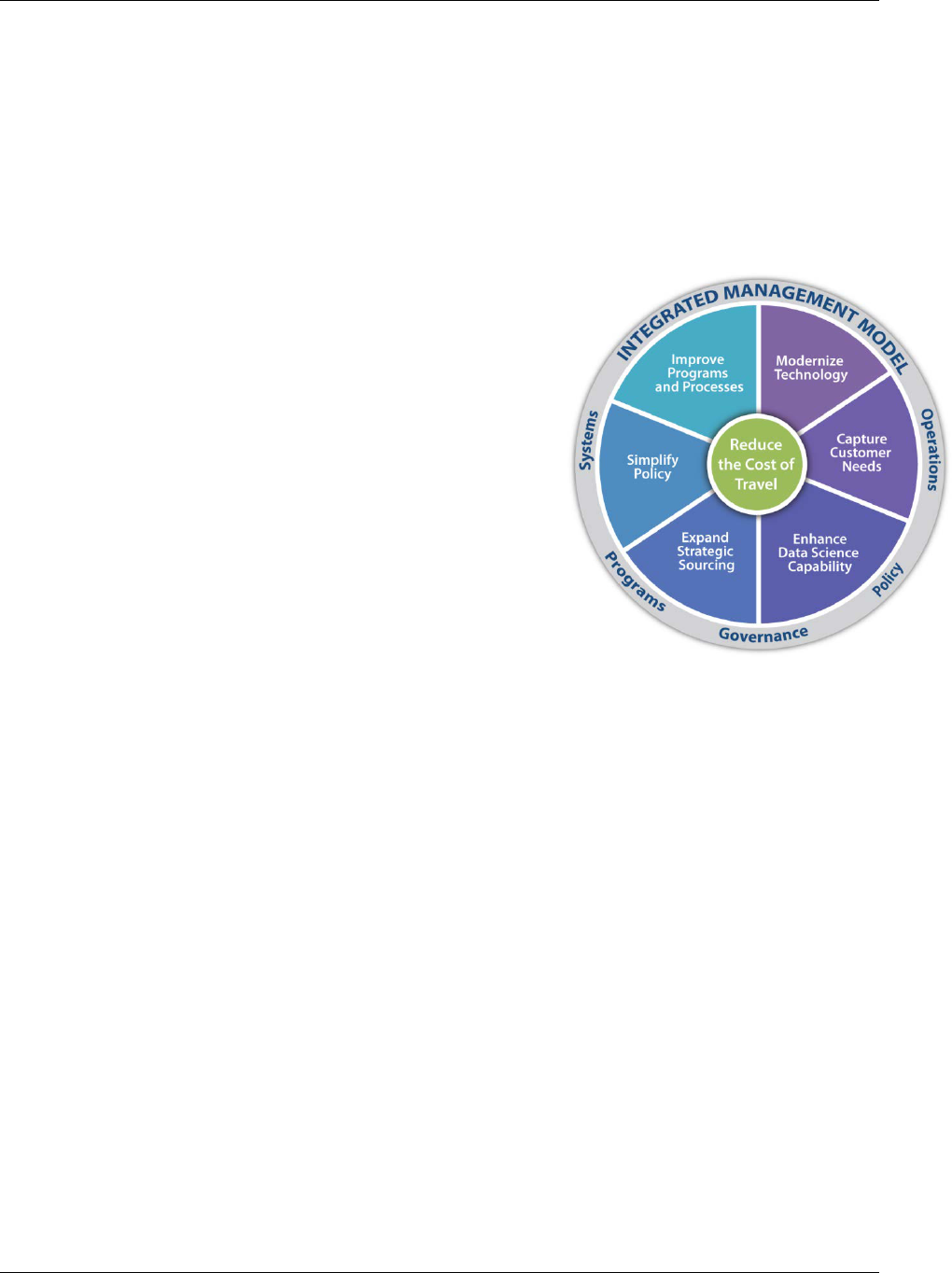
Defense Travel Management Office, FY 2017 – FY 2021 Business Operations Plan, v4 10/2019
Defense Travel Management Office 2
As DTMO continues down its path of travel and allowance reform, this business operations plan for FY
2017-2021 remains focused on our customers—DoD travelers and those that help manage the multi-
billion dollar Defense Travel Enterprise. We are committed to improving the delivery of travel services
and providing a positive customer experience; maximizing policy understanding and compliance;
maximizing control and visibility into travel spend; improving the cost-effectiveness across the Defense
Travel Enterprise; and providing duty of care to our Service Members and civilian employees within the
Department of Defense.
DTMO At-A-Glance
DTMO is effectively managing and reforming the Defense Travel
Enterprise through its unique integrated management model
that combines strategy, operations, policy, governance,
programs and systems in order to reduce the cost of travel. This
approach requires customer input and relies on a data science
capability to drive evidence based decision-making to improve
programs, modernize technology, strategically source travel
services, and drive down costs for travel. This integrated
approach is applied to all five of our functional program areas:
• Travel Policy and Implementation
• Commercial Travel Management
• Functional Oversight of the Defense Travel System (DTS)
• Travel Card Program Management
• Customer Support and Training
Products and Services
In support of these program areas, DTMO provides its customers with the following products and
services.
Travel Policy and Implementation
• Per Diem Travel and Transportation Allowance Committee (PDTATAC) Support – Provides
support to the PDTATAC staff by developing, administering, and maintaining uniform travel and
transportation, station, and housing allowance regulations.
• JTR and JTR Change Management – Sets, reviews and updates travel, transportation and
allowance policy in the JTR.
• Travel Policy Compliance Program Management – Manages and maintains the DoD Travel
Policy Compliance Program to include the Travel Policy Compliance Tool. Manages application
development, performs data analysis, and provides customer support and outreach.
• Department of Defense Instruction (DoDI) Management – Drafts and reviews Department of
Defense Instructions to include DoDI 5154.31”Commercial Travel Management.”
• JTR field support services – Answers regulatory questions from the field.
• Civilian Board of Contract Appeals and Defense Office of Hearings and Appeals Request
Management – Provides historical regulatory documents/information per Civilian Board of

Defense Travel Management Office, FY 2017 – FY 2021 Business Operations Plan, v4 10/2019
Defense Travel Management Office 3
Contract Appeals for civilian employees, and Defense Office of Hearings and Appeals for the
Uniformed Services requests necessary to adjudicate a claimant case against the Federal
Government.
Commercial Travel Management
• Travel Management Company (TMC) Services Procurement and Program Management –
Acquires and manages TMC services for DoD, providing cost efficient commercial travel support
that affords travelers uninterrupted travel services and the ability to meet their mission.
• US Government Rental Car/Truck Programs Management – Provides special rental benefits and
reduced rates to all federal government employees traveling on official business. The programs
are designed to meet the needs of the federal traveler, and provide quality rentals at over
10,000 rental locations.
• Recruit Travel and Assistance Services – Provides 24/7/365 assistance to new recruits in all
Military Departments, including the U.S. Coast Guard. Provides lodging, transportation, meals,
medical support and guidance, and emergency support for recruits while they are enroute to
their basic training locations.
• Military Bus Program Management – Provides safe, secure, reliable and cost-effective ground
transportation services for DoD personnel on official duty that consistently meets DoD
standards of service. Over 500 carriers participate in the program, offering ground
transportation to individual and group DoD passengers, that includes military movement
solicitations for military exercises, contingencies, evacuations, and national emergencies/natural
disasters, as well as recruit travel.
• Passenger Surface Inspection Management – Assesses a bus company’s operational capability
and verifies a carrier’s compliance with commercial bus laws/standards to ensure equipment
used to transport DoD personnel is safe and secure. The program helps maintain a core base of
qualified carriers through extensive pre-qualification and periodic inspection process that
includes stringent safety and security reviews, verification of a carrier’s knowledge of
regulations and equipment safety, ongoing unscheduled onsite facility and equipment
inspections every two years or as required, as well as roadside inspections during transportation
operation.
• Group Travel Services – Manages group moves for Military Service members in support of
military exercises, annual training, deployments and redeployments, and emergency
evacuations.
• Commercial Air Management – Serves as the DoD interface for GSA's City Pair Program (CPP);
manages Premium Class Travel and unused tickets, and implements the use of restricted
airfares.
• Integrated Lodging Program Pilot Management – Manages the Integrated Lodging Program
Pilot to assist the Department in determining the best approach for providing quality
government (DoD), privatized and commercial lodging with the goal of achieving reduced rates,
better services, and greater safety and security for the traveler.
• Preferred Dining Program Pilot – Manages the Preferred Dining Program Pilot, a corporate style
program enabling travelers to dine at participating restaurants. Objectives include maximizing
rebates and inclusion of restaurants where DoD travelers currently dine; creating incentive for
travelers to use the program (loyalty program); and increase the use of the Government Travel
Charge Card.

Defense Travel Management Office, FY 2017 – FY 2021 Business Operations Plan, v4 10/2019
Defense Travel Management Office 4
Functional Oversight of the Defense Travel System
• Functional Requirements Analysis and Management of the Defense Travel System (DTS) –
Oversees and facilitates the change management process for DTS functional requirements in
coordination with the Program Management Office (PMO)-DTS.
• DTS Sustainment Management – Determines any necessary enhancements to DTS; reviews and
provides concurrence on system level requirements and design; coordinates consensus on new
requirements for DTS through the DoD Components; obtains approval and prioritization from
the Defense Travel Improvement Board; coordinates the implementation schedule with PMO-
DTS and conducts testing prior to implementation.
• Defense Travel System Regulations Management – Establishes and maintains the Defense
Travel System Regulations that define the responsibilities of DTS users by user role, types of
official travel documents created in DTS, financial aspects of DTS, and minimum required
training for each user role.
Government Travel Charge Card Management
• Government Travel Charge Card (GTCC) Regulations Management – Establishes DoD-specific
policy to implement Public Law 105-264, 107-314, 112-194 and others as applicable through the
DoD Government Travel Charge Card Regulations.
• GSA Smart Pay Task Order Management – Develops requirements for and ensures compliance
with the DoD-Tailored Task Order for the GSA SmartPay Master Contract.
• Component Program Management (CPM) Support – Serves as CPM for Defense Agencies by
assisting with program oversight; providing direction to Agency Program Coordinators (APCs);
ensuring Individually Billed Accounts (IBAs) and Centrally Billed Accounts (CBAs) are approved,
and credit limits are established and maintained; monitoring card utilization; and maintaining
component organization structure.
• Training Development and Oversight – Ensures required training resources are provided; both
DoD developed resources as well as training resources provided by the Travel Card Vendor.
• DTS CBA Reconciliation Support – assists the Services/Agencies with implementation of the DTS
CBA Reconciliation Module and reconciling charges made to CBAs in DTS.
Customer Support and Training
• Travel Assistance Center (24/7 Help Desk Support) – Provides 24/7/365 enhanced customer
support to well over one million DoD travelers annually. The TAC assists DoD travelers across
the spectrum of DoD travel, including DTS, GTCC, commercial travel programs, and travel policy.
The TAC offers support via telephone, electronic mail and automated web based tools to
effectively communicate and assist travelers before, during, and after trips.
• DoD Travel Training and Reference Materials – Provides development and delivery of over 250
comprehensive training resources to include web-based training; distance learning and online
demonstrations; instructor resources; reference materials and Frequently Asked Questions; and
management of the DoD Travel Certificate Program. Travel Explorer (TraX) provides a
centralized source for online training as well online access to the Travel Assistance Center and to
other trip tools and useful information.
• Outreach and Travel Support – Provides direct communication and outreach to HQ-Level travel
managers and stakeholders in support of DoD travel programs and systems; facilitates DTS
sustainment initiatives and change management processes.
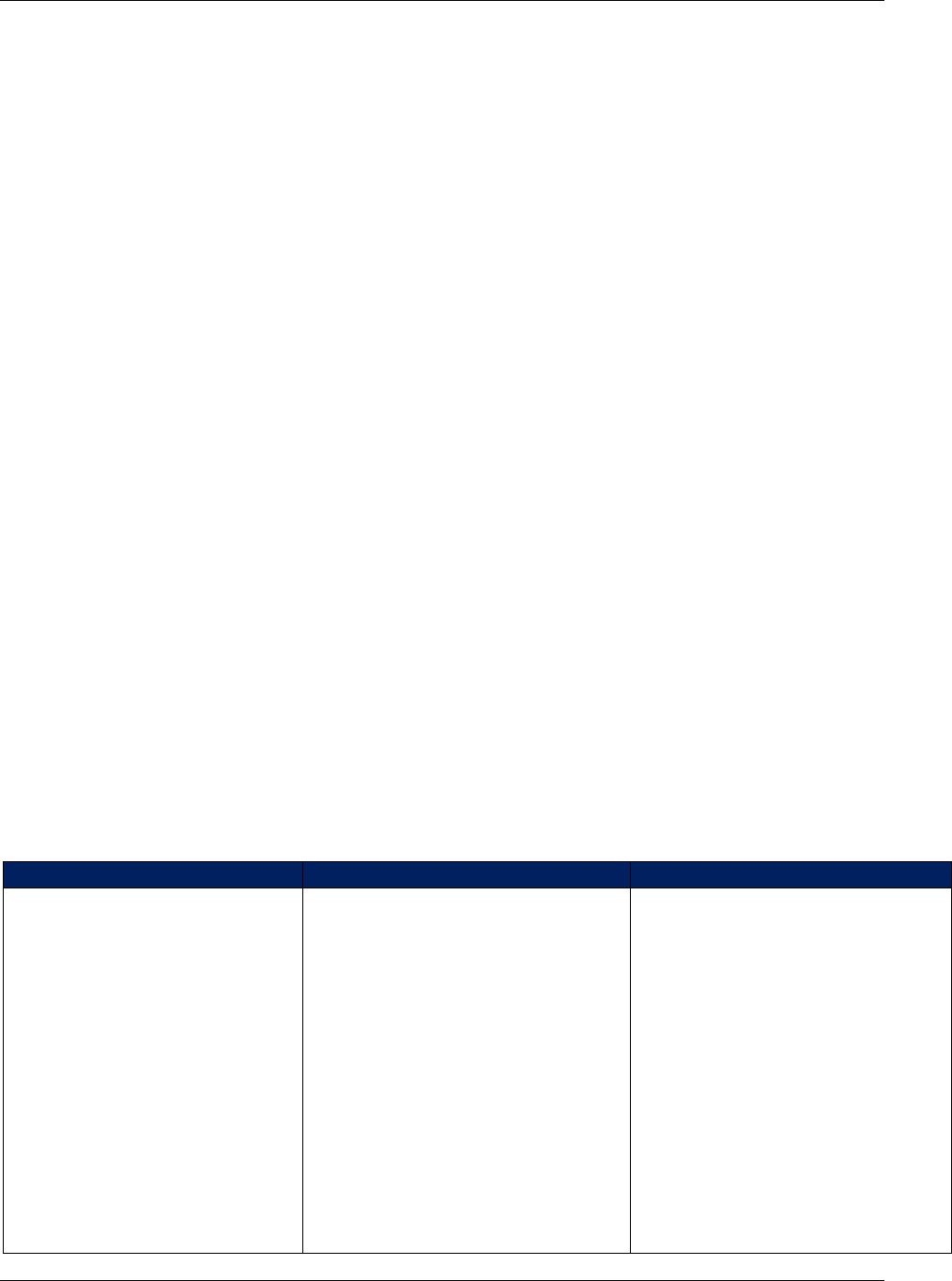
Defense Travel Management Office, FY 2017 – FY 2021 Business Operations Plan, v4 10/2019
Defense Travel Management Office 5
• Customer/Stakeholder Surveys – Deploys DoD travel program area customer satisfaction
surveys to better assess and improve the overall traveler experience.
Enterprise Management
DTMO performs cross-functional enterprise management functions that support the overall
organization. These functions drive evidence based decision-making, assess progress, and effectively
communicate with customers and key stakeholders. Enterprise management functions include:
• Strategic Planning – Sets the overall strategic direction and develops and executes the strategy
for the Defense Travel Enterprise.
• Enterprise Performance Management – An ongoing process of establishing strategic objectives;
measuring and monitoring performance, analyzing performance data to create business
intelligence; and leveraging those insights to drive accountability, management decisions,
reporting, compliance, resource allocation, risk management, and continuous improvement.
• Data Analytics – Conducts rigorous analytical studies with a standardized approach to assist
program managers and process owners with identifying problems or opportunities for program
improvement; includes the application of scientific methods to improve the effectiveness and
efficiency of operations, decisions, and management via means such as analyzing data, creating
and testing statistical models, interpreting information, and proposing innovative approaches.
• Strategic Communications – Develops and executes comprehensive communications plans and
develops and updates communications products and marketing materials for strategic
initiatives, projects, and programs. This includes responding to legislative issues and public
affairs issues relating to the Defense Travel Enterprise.
This Enterprise Management approach is intrinsic to DTMO’s integrated management model that drives
evidence based decisions, assesses program progress, and effectively communicates with customers and
key stakeholders.
Customers, Stakeholders, and Partners
Customers
Stakeholders
Partners
• Services and Defense
Agencies
• Travel Managers
• Travel Administrators
• DoD Travelers
• Federal Travelers
• Spouses/Families
• Uniformed Service Members
• Public
• Other Federal Agencies
• Veterans
• Commercial Travel Industry
• Media
• Congress
• Oversight (DoD Inspector
General (DoDIG); U.S.
Government Accountability
Office (GAO))
• Office of Management & Budget
(OMB)
• General Services Administration
(GSA) – Office of Gov-wide policy
• Governance Boards
• Taxpayers
• Defense Finance and Accounting
Service
• Defense Manpower Data Center
• Department of State
• DoD Services/Agencies
• Commercial Travel Vendors
• DTMO Support Contractors
• National Defense Transportation
Association
• Senior Travel Official Council
• United States Digital
Service/Defense Digital Service
• Transportation Security
Administration

Defense Travel Management Office, FY 2017 – FY 2021 Business Operations Plan, v4 10/2019
Defense Travel Management Office 6
• DoD Leadership (Comptroller;
Deputy Chief Management
Officer; Chief Information
Officer, Acquisition, Technology
and Logistics)
• Unions
• Veterans Service Organizations
• Civilian Board of Contract
Appeals/Defense Office of
Hearings and Appeals
• Non-Governmental
Organizations
• GSA Program Support
(FedRooms, City Pair Program,
Per Diem, SmartPay)
• US Transportation Command
• United States Military Entrance
Processing Command
• Department of Transportation
DTMO values its wide range of customers, stakeholders and partners. Their input informs our strategy
and ensures our success. Our customers desire easy-to-use modernized travel solutions, simple travel
rules, and fair and equitable travel and station/housing allowances. Our stakeholders require cost
effective solutions and improved processes and programs with the ability to fairly compensate members
and still meet mission requirements. Developing strong relationships with our partners is necessary to
improve travel services, achieve better buying power, and improve spend management. DTMO
considers these diverse needs and develops products, delivers services, and tailors messages according
to those needs.
Governance
DTMO coordinates and engages with Travel and Allowance Governance boards to oversee the
management of the Defense Travel Enterprise, providing the DTMO with strategic guidance in the
performance of its mission. This governance framework is under review. Current governance bodies
include:
• Defense Travel Steering Committee – The Defense Travel Steering Committee (DTSC) is chaired
by the Director, DTMO and is an O-8 or equivalent level body. The DTSC sets strategic direction
and provides oversight. Permanent Principals include: Department of the Army; Department of
the Navy; Department of the Air Force; Acquisition, Technology & Logistics; Defense Finance &
Accounting Service; Defense Information Systems Agency; Defense Logistics Agency; and the
United States Transportation Command. The DTSC serves as a governing body for appeals
submitted by Defense Travel Improvement Board (DTIB) members and provides oversight of
DTIB activities. The final decision authority is the Director, DTMO.
• Defense Travel Improvement Board – The DTIB has authority for managing changes to current
and future travel requirements. It is chaired by DTMO and is an O-6/GS-15 level body. The
permanent Principals include: Military Departments; United States Marine Corps; Under
Secretary of Defense for Acquisition, Technology, and Logistics; Defense Information System
Agency; Defense Logistics Agency; Defense Finance Accounting Service; and United States
Transportation Command. Advisory members are the Per Diem, Travel, and Transportation
Allowance Committee and the Program Management Office - Defense Travel System. The chair
retains final decision authority.
• Per Diem Travel and Transportation Allowance Committee – The Per Diem Travel and
Transportation Allowance Committee (PDTATAC) is composed of senior executive and flag

Defense Travel Management Office, FY 2017 – FY 2021 Business Operations Plan, v4 10/2019
Defense Travel Management Office 7
officers from the three Military Departments, U.S. Coast Guard, Public Health Service, and the
National Oceanic and Atmospheric Administration Corps (NOAA). Its permanent chair is the
Deputy Assistant Secretary of Defense for Military Personnel Policy (DASD/MPP). Committee
business is usually conducted electronically and through advisory panel representatives.
Members include: a Deputy Assistant Secretary from each of the Military Departments; the
Director of NOAA; the Commandant of the Coast Guard (USCG); the Surgeon General of the
Public Health Service (USPHS).
• Military Advisory Panel – The Military Advisory Panel (MAP) includes representatives from the
seven uniformed services and invited guests. It meets every two weeks, and generates and
evaluates issues pertaining to per diem, travel and transportation allowances, housing
allowances, and cost of living allowances.
• Civilian Advisory Panel – The Civilian Advisory Panel (CAP) meets monthly and includes
representatives from the DoD Components, and invited guests. It generates and evaluates issues
pertaining to per diem, travel and transportation allowances for DoD civilian employees.
Stakeholder Engagement
An effective strategy depends largely on effective stakeholder engagement. We will only achieve our
strategic goals and objectives through the creation of shared values that require continuous,
constructive relationships with our government and industry stakeholders. These relationships within
both Government and the travel industry enable the exchange of ideas for a more effective travel
enterprise. DTMO engages with the following government and industry forums:
Defense Lodging Council
The Defense Lodging Council (DLC) serves to facilitate efforts to move toward an enterprise-wide
lodging strategy that includes integrating the capability to book military lodging through DTS, forming a
centrally led commercial lodging network and monitoring progress towards meeting the Department’s
lodging vision and objectives, and ultimately reducing overall travel costs. This council is co-chaired by
DTMO and Military Community & Family Policy and its membership is comprised of Service
representatives at the GS-14-15/O-5/O-6 level.
Passenger Services Advisory Group
The Passenger Services Advisory Group (PSAG) serves to maintain awareness among the Services and
OSD of military passenger service secretarial initiatives, priorities, and responsibilities. Additionally, the
PSAG leverages related initiatives and similar functional areas of responsibility such as managing costs
and quality of life issues. Participation enhances each passenger service organization and improves
coordination with agencies related to military and civilian passenger policy areas. The group
incorporates new developments while fostering an environment of accountable performance standards
to meet passenger travel initiative development in both government and commercial travel service
areas. PSAG is comprised of Government representatives from each of the Services. DTMO participates
as an advisory member.
Component Program Managers
DoD Government Travel Charge Card (GTCC) Component Program Managers (CPMs) have overall
management responsibility for their respective GTCC programs. At a minimum, CPMs ensure: proper
establishment and execution/maintenance of their Component's Program; that adequate travel card
training is provided; GTCC policies for the Department and the Component are enforced; delinquencies
are minimized; and that travel card program benefits are maximized. CPMs proactively network with

Defense Travel Management Office, FY 2017 – FY 2021 Business Operations Plan, v4 10/2019
Defense Travel Management Office 8
their counterparts in other Components, and other DoD business lines to address mutual areas of
concern and to share ideas and solutions to solving common business challenges.
Office of Management and Budget - Category Management Leadership Council (CMLC)
Chaired by OMB’s Administrator, Office of Federal Procurement Policy, the CMLC is comprised of agency
acquisition, information technology, financial, and other senior agency leadership and serves as the
primary governing body for category management. Category management creates common categories
of products and services across Federal agencies and allows the Federal Government to buy smarter and
more like a single enterprise. The CMLC approves the government-wide category structure and
governance, and advises on category strategies and initiatives. The CMLC also provides direction on how
the Government should prioritize its efforts to reduce redundancy and leverage buying power. In
addition, the CMLC will support the approval and execution of category strategic plans and review and
monitor category performance. The CMLC approved dividing the federal marketplace into ten super
categories of commonly purchased items, including Travel and Lodging.
Senior Travel Official Council
The Senior Travel Official Council (STOC) serves as the principal interagency council responsible for
creating a forum for collaboration and opportunity identification to better align government-wide
strategies; promoting efficient and effective spending; influencing measurable outcomes; informing
stakeholders and generating support for the business of travel; and professionalizing the role of the
government travel manager. It is co-chaired by the General Services Administration (GSA) and DTMO.
General Services Administration (GSA)
DTMO engages with GSA Travel Programs and the Office of Government-wide Policy to discuss program
and policy solutions that are advantageous to DoD and the federal government. DTMO also participates
in GSA established forums to discuss and exchange ideas with other federal agencies on government-
wide travel policies, regulations and programs to drive the future direction of travel programs.
National Defense Transportation Association
The National Defense Transportation Association (NDTA) is a non-political, non-profit educational
association of government, military, and industry professionals dedicated to fostering a strong and
efficient global transportation and distribution system in support of national security. NDTA
promotes exchange on current matters of transportation, travel, distribution, logistics and security,
allowing for knowledge sharing in a non-partisan, fair, and objective environment. Over 9,000 members
around the world participate, and are able to discuss critical issues openly in a professional
atmosphere consistent with the principles of government ethics and without commercial trade
constraints. Results are shared with various interested parties. NDTA is a tax exempt organization,
fully recognized federally by the Internal Revenue Service.
Global Business Travel Association
The Global Business Travel Association (GBTA) is the premier business travel and meetings organization.
Collectively, GBTA’s 5,000-plus members manage over $340 billion of global business travel and
meetings expenditures annually. GBTA provides its network of 21,000 business and government travel
and meetings managers, as well as travel service providers, with networking events, news, education &
professional development, research, and advocacy.

Defense Travel Management Office, FY 2017 – FY 2021 Business Operations Plan, v4 10/2019
Defense Travel Management Office 9
Customer & Stakeholder Values
Customer and stakeholder values play an important role in the strategic planning process. They serve as
a guide in implementing solutions that enable mission accomplishment. The values of our customers
and stakeholders include:
• Choice – Travel services that provide choice and flexibility.
• Reliability and consistency – Travel and station/housing allowances related services that are
delivered reliably and consistently over time.
• Simplicity – Simple, easy-to-use travel policies and solutions that support mission achievement.
• User Friendly Technology – Modernized, easy-to-use technology that embeds improved
processes and simplified policies.
• Responsiveness – Responsive to customer feedback and requirements and remains responsive
to changing needs and market trends.
• Equity and fairness – Travel allowances that are fair and equitable.
• Accurate and timely reimbursement – Travel payments that are accurate and processed in a
timely fashion.
• Accurate and timely information – Accurate, understandable and timely information relating to
travel services.
• Accountability and transparency – Travel policy and technology systems support the stated
desire for increased transparency and accountability across the federal government.
• Cost effectiveness - Travel related costs represent a significant investment for DoD. DTMO
customers and stakeholders expect a return on their investment.
DTMO Guiding Principles
DTMO organizational values serve as the foundation in every action taken and every decision made
impacting the Defense Travel Enterprise. These values underlie our work, and help to determine which
strategies we will employ to realize our mission. Our values are reflected in the following DTMO guiding
principles:
• Duty of care – Travel services that provide the traveler safety and security, quality
accommodations, financial protections and conveniences.
• Fair Compensation – Fairly compensate Service members and civilian employees for travel while
meeting mission requirements.
• Evidence Based Decision Making – Using accurate and timely data to more effectively source
travel services, ensure quality service delivery from vendors, improve travel programs and
processes, and reduce the overall cost of travel.
• Customer-focused – Deliver quality services and choice and provide a positive customer
experience.
• Do No Harm – Manage the efficiency and effectiveness of the Defense Travel Enterprise without
harming the Service member or traveler.
• Simple Travel Solutions – Simplifying the travel process is a key element of travel reform.
Complex rules and processes must be streamlined and mission outcome must drive decisions.

Defense Travel Management Office, FY 2017 – FY 2021 Business Operations Plan, v4 10/2019
Defense Travel Management Office 10
DTMO Business Operations Plan
DTMO regularly develops, publishes, and
implements a five-year business operations plan
designed to guide our efforts. This plan continues
the progress of travel reform initiatives of the
previous five years that coincided with, and was
in response to, Congressional and Executive
mandates to reduce the costs of travel.
These mandates included:
• National Defense Authorization Acts
(NDAA) for FY 2010 and FY 2012
providing increased authorities to reform
and simplify travel, including pilot
authority
• NDAA FY 2015 providing more specific
pilot authority for the DoD Integrated
Lodging Program Pilot
• Office of Management and Budget (OMB) Memorandum M-12-12, Promoting Efficient Spending
to Support Agency Operations to reduce travel by 30%
• OMB M-13-02, Improving Acquisition through Strategic Sourcing.
Strategic Alignment
The DTMO Business Operations Plan aligns with the National Defense Business Operations Plan for Fiscal
Years 2018-2022. It supports Strategic Goal 3: Reform the Department’s business practices for greater
performance and affordability. It further aligns to the DoD Strategic Objective 3.1: Improve and
strengthen business operation through a move to DoD-enterprise or shared services; reduce
administrative and regulatory burden.
In addition, DTMO is operationally and administratively aligned to the Defense Human Resources
Activity (DHRA) to work as a single, unified organization in accomplishing a diverse mission set that
supports the war fighter. DTMO is an integral component of DHRA with a strategy fully aligned with the
DHRA Business Operations Plan. Supporting the plan’s first goal, “Drive business transformation
through data driven analysis and rationalization of Human Resources requirements and solutions,” is the
strategic initiative to “Reform travel by streamlining processes, simplifying policies, improving
compliance, leveraging current technologies, and reducing costs.” DTMO’s strategy and business
operations are in synch with DHRA’s priorities to:
• Operate as an enterprise; be a lean nimble organization improving continually
• Be a financially auditable organization
• Accomplish assigned missions through the implementation of repeatable processes and reliance
on fact-based decision-making
• Achieve minimum 1% efficiency per year over the Future Year Defense Program (FYDP) to invest
in unfunded requirements
• Ensure sustained security posture through the delivery of all services and missions
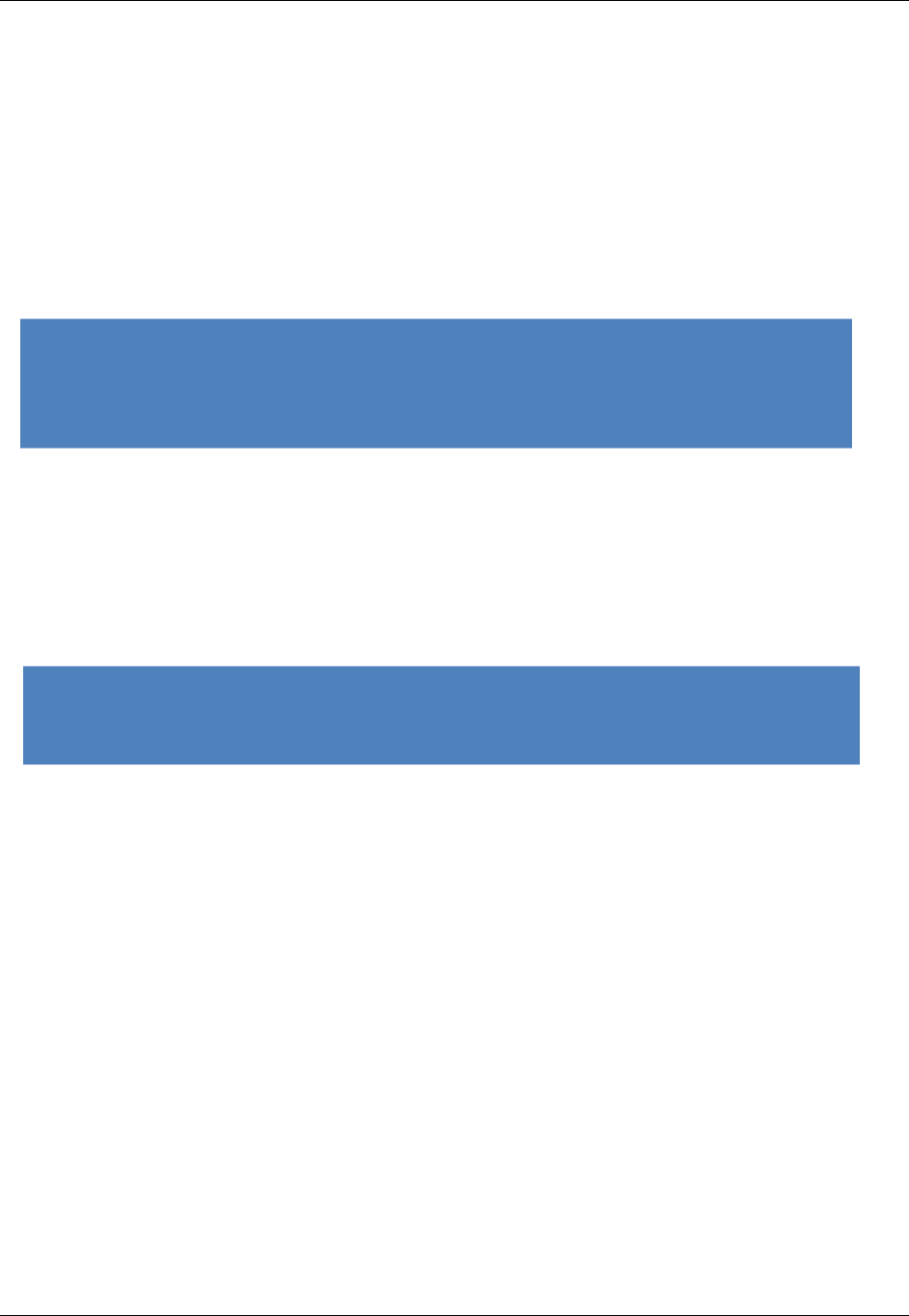
Defense Travel Management Office, FY 2017 – FY 2021 Business Operations Plan, v4 10/2019
Defense Travel Management Office 11
• Be a trusted enterprise provider to ensure continuation of crucial services and protection of
human resources information
Mission
DTMO’s mission is grounded in the DoD Management Initiative Decision (MID) that resulted in the
establishment of DTMO in February 2006. MID 921 directed the Department to provide an integrated
travel management approach within DoD and authorized DTMO to serve as the “single face” to the
travel industry for information exchanges with the government. The DTMO mission as stated is to:
Vision
DTMO’s continued charge is to rethink the way we do business, identify industry best practices, and
develop innovative solutions to meet mission requirements. Our focus is
on achieving measurable
results that demonstrate value for our customers and generate a return on investment for the
Department and the taxpayers. Focused on our customers, the DTMO vision is:
Strategic Goals, Objectives, and Initiatives
DTMO’s strategic goals are high-level end outcomes necessary to achieve its vision and reflect our
continued commitment to travel and allowance reform. DTMO’s strategic objectives are intermediate
outcomes that are aligned to our strategic goals. Strategic initiatives translate strategy into operational
terms, representing “how” the strategic objective will be accomplished. They are specific projects
ensuring progress is made in accomplishing each strategic objective over a period of time. Below is
DTMO’s strategy.
Strategic Goal: Maximize Travel Policy Understanding
DTMO will develop simple, comprehensive, and easily-understood travel policies and regulations. Clear
and concise policies must facilitate the creation of simple, easy-to-use travel solutions that drive high
compliance.
Strategic Objective: Simplify travel policy through simple, clear, and concise policies
Travel policy will be reduced and simplified to eliminate redundancies and reduce confusion for
travelers and Authorizing Officials.
Serve as the single focal point for commercial travel within the Department of
Defense. Establish strategic direction, set policy, and centrally manage
commercial travel programs.
A Defense Travel Enterprise that incorporates government and industry best
practices to meet the needs and exceed the expectations of our customers.

Defense Travel Management Office, FY 2017 – FY 2021 Business Operations Plan, v4 10/2019
Defense Travel Management Office 12
Strategic Initiative: Rewrite the Joint Travel Regulations (JTR)
Improve usability and enhance policy compliance by rewriting the JTR in clear, concise and simple
language. Rewriting the JTR is a result of our overall policy simplification effort designed to standardize
and/or simplify travel policy and allowances, and/or provide cost savings opportunities. The end result is
simplified travel rules and a JTR that is easy to comprehend, facilitates travel management technology
solutions, and enables an optimum compliance platform. The overall policy simplification effort is a high
visibility initiative sponsored by the Office of the Under Secretary of Defense for Personnel and
Readiness with involvement from the United States Digital Service and the Defense Digital Service.
Strategic Initiative: Explore the issuance of the Government Travel Charge Card (IBA) to all travelers,
assessing the current usage policy and its enforcement
Explore whether all DoD employees with a travel requirement should be required to apply for (and use)
the Government Travel Charge Card (GTCC). DTMO will assess compliance of the current policy and
determine benefits, challenges, costs and risks of expanding the policy.
Strategic Objective: Improve DoD travel processes to reduce confusion for travelers and travel
administrators
Technology holds great promise in helping to maximize policy understanding and make travel less
confusing for our travelers, administrators, and travel managers. To facilitate industry leading
technology solutions requires the Department to examine not only its travel policies, but also the
business processes used to implement them.
Strategic Initiative: Identify process reengineering opportunities from the DoD Travel System Pilot
Identify process reengineering opportunities as a result of the DoD Travel System Pilot. The pilot is
testing the viability of using a Commercial-off-the-Shelf, Software as a Service (COTS/SaaS) product for
travel reservations and expense management. DTMO will identify DoD inherent processes (e.g.,
financial) requiring reengineering to better fit commercially available products and provide cost savings
to the Department.
Strategic Initiative: Expand and improve the DoD Travel Policy Compliance Program
Expand and improve the DoD Travel Policy Compliance Program by automating current manual
processes and implementing additional queries in order to reduce travel improper payments and
improve usability for DoD Components.
Strategic Goal: Improve Delivery of Travel Services
DTMO will pursue innovative ways to enhance the customer travel experience by providing user-
friendly, value-added travel products and services to DoD travel customers and stakeholders.
Strategic Objective: Understand and respond to customer needs
DTMO will continue to understand and respond to customer and stakeholder needs by improving
customer and stakeholder engagement through the implementation of improved processes and tools.
Strategic Initiative: Assess and strengthen Defense travel governance & stakeholder engagement
DTMO has not reexamined its governance structure and operating model since the establishment of
DTMO in 2006. Much has changed since then. This initiative will look to strengthen our governance

Defense Travel Management Office, FY 2017 – FY 2021 Business Operations Plan, v4 10/2019
Defense Travel Management Office 13
framework and develop an updated governance operating model to more effectively provide strategic
guidance for the Defense Travel Enterprise. DTMO will also assess its stakeholder engagement to
develop and execute a refreshed stakeholder engagement strategy to complement the revised
governance operating model.
Strategic Initiative: Complete enterprise-wide collection and analysis of travel program customer
satisfaction surveys
To better assess and improve the overall traveler experience, this initiative will complete the
deployment of DoD travel program area customer satisfaction surveys for air, lodging, rental car, TMC
services, and the Government Travel Charge Card. These surveys will provide insight into the gap
between product/service delivery and customer expectations, facilitating an understanding of what
drives customer satisfaction. This will further enable informed enterprise decision-making to more
effectively source travel services, ensure quality service delivery from vendors, and improve travel
programs and processes.
Strategic Objective: Leverage industry leading technology solutions
Today’s travelers are more technically savvy and want tools that mirror those they use in their personal
lives. Suppliers are partnering and changing the way they do business. Since the Department depends
on industry for its travel-related products and services, DTMO must more quickly adapt industry leading
technology. Technology is changing rapidly, providing alternatives to traditional travel that may be
more cost effective.
Strategic Initiative: Assess the results of the DoD Travel System Pilot to make recommendations on the
feasibility for procuring and implementing a Commercial-off-the-shelf/Software as a Service solution
DoD-wide
The Department has been piloting a COTS/SaaS travel product to assess its feasibility for DoD travel.
This initiative will employ a mix of system metrics, user feedback, cost analysis, and narrative analysis to
assess its progress and report the results to Congress.
Strategic Initiative: Redesign the DTMO website using US Web Design Standards to enhance mobile
access and enable an effective social media strategy
While the current DTMO website provides comprehensive and useful information, it has not been
redesigned since 2009. The current site is not mobile friendly and inhibits an effective social media
strategy. This initiative will redesign the website using US Web Design Standards, the government’s very
own set of common User Interface components and visual styles for websites. It’s a resource designed
with the assistance of the U.S. Digital Service to make things easier for government designers and
developers, while raising the bar on what our web users can expect from their digital experience.
Strategic Objective: Improve travel programs and program management
When managing billions of dollars of travel spend, the smallest management improvement may yield
millions of dollars in savings. DTMO program managers continuously seek to improve the management
of travel and travel-related services. The result is not only potential savings, but improved customer
service and increased stakeholder value.
Strategic Initiative: Develop and implement a strategy to improve the DoD Recruit Assistance Program

Defense Travel Management Office, FY 2017 – FY 2021 Business Operations Plan, v4 10/2019
Defense Travel Management Office 14
DTMO will assess the current DoD Recruit Assistance Program and identify both program and process
improvements to more effectively assist DoD recruits. Improvements will integrate improved lodging
and dining processes with better negotiated rates, improved GTCC controls for centrally billed accounts,
and enhanced data and performance management capabilities.
Strategic Initiative: Expand the Travel Certificate Program to include additional travel
management/administration roles
DTMO will look to expand its successful Travel Certificate Program by evaluating the feasibility of
developing certificates for additional travel roles beyond the DTS Authorizing Official and Defense Travel
Administrator. This program provides a framework for successful travel program management,
increases performance ability using hands-on developmental validation, and provides opportunities for
continuous learning on travel regulations, system updates, and enterprise partnerships. This continuous
validation of performance capabilities promotes improvement in the Department's travel and financial
program management with a focus on optimal processes to support the traveler and decreasing
improper payments.
Strategic Initiative: Develop the SmartPay 3 requirements and Plan of Action & Milestones to improve
GTCC program management
Improve GTCC program management by developing DoD unique requirements for the SmartPay3 DoD
tailored task order and a Plan of Action & Milestones for implementation. This initiative will provide
value to cardholders and Agency Program Coordinators through the use of more innovative card
products and tools with which to manage the program and will maximize rebates the Department
receives. SmartPay3 is scheduled to begin in November 2018.
Strategic Goal: Optimize Cost Effective Travel
DTMO will continue to examine and track travel expenditures and program costs, and implement
process efficiencies to achieve cost savings.
Strategic Objective: Maximize visibility into DoD travel spend to better understand supplier and
traveler behavior
DTMO will continue to consolidate and enhance the quality of travel data providing the capability to
develop and leverage the business intelligence required to produce greater efficiency and effectiveness
across the Defense Travel Enterprise. Business intelligence is crucial for negotiating contracts with
commercial travel vendors to ensure the greatest value for the Department and the taxpayers.
Strategic Initiative: Leverage program area Super Users to expand the deployment of DTMO’s data
visualization and dashboard application in support of Defense Travel Enterprise Performance
Management
Expand usage of DTMO’s data visualization and dashboard application, Tableau, by increasing the
amount of super users and providing enhanced training enabling program managers to better manage
commercial travel programs. This approach takes advantage of Tableau best practices and will serve as
a force multiplier to further expand analytics across the organization and Defense Travel Enterprise.
Strategic Initiative: Institute a quarterly Defense Travel Enterprise Performance review

Defense Travel Management Office, FY 2017 – FY 2021 Business Operations Plan, v4 10/2019
Defense Travel Management Office 15
This initiative will result in the incremental deployment of Tableau dashboards for key performance
indicators to assess the overall health of the Defense Travel Enterprise. The incremental approach will
begin with internal reporting and then expand to customized reports for key stakeholders.
Strategic Initiative: Integrate new sources of Government and commercially available travel data into
DTMO’s Commercial Travel Information Management (CTIM) operational and business intelligence
platform
Integrate additional government and commercially available data sources into CTIM providing a more
holistic view of DoD travel spend to determine opportunities for program improvement or expansion.
Strategic Objective: Adopt industry best practices to leverage strategic sourcing opportunities
Throughout DoD, the mandate is to more fully employ the management philosophy of strategic sourcing
as a means to better meet DoD’s requirements while generating savings for the Department. This
includes the procurement of travel and travel-related services. DTMO will continue to expand its use of
strategic sourcing, working with our partners to create value for our customers and stakeholders.
Strategic Initiative: Expand and formally institutionalize the DoD Integrated Lodging Program
Expand the number of locations and properties under the Integrated Lodging Program Pilot, increasing
the availability of Commercial (DoD Preferred), Government (DoD Lodging) and Public-Private Venture
Lodging to DoD employees on official travel. In addition, DTMO will work with our stakeholders to
transition and formally institutionalize the pilot as a DoD program. This will further provide quality
lodging with reduced rates, better services, and greater safety and security for DoD travelers into the
future.
Strategic Initiative: Conduct a Dining Program Pilot
Conduct a corporate style Preferred Dining Program enabling travelers to dine at participating
restaurants, thereby generating rebates for DoD. This initiative will provide a managed approach to
dining estimated to yield 3 to 7 percent in rebates based on dining spend for DoD. It will create
incentives for travelers to use the Dining Program through a loyalty program and as a result, increase
usage of the GTCC generating both dining and increased GTCC rebates. This pilot will be conducted
under Title 37 U.S.C. 454.
Strategic Initiative: Develop an acquisition strategy for Travel Management Company (TMC) services
that supports DoD Travel System Modernization
DTMO made huge strides in consolidating the Department’s multitude of TMC services contracts to a
manageable number. This initiative will take a more forward-leading approach to developing an
acquisition strategy that is both cost effective and will meet DoD’s future TMC support requirements as
we transition to a next generation travel system.
Strategic Initiative: Expand and manage the use of restricted air fares
While the JTR authorizes the use of restricted air fares, DoD has not optimized their use to maximize
savings. This initiative will look to expand and more effectively manage the use of restricted fares
through technology, TMC support contracts, policy, training, communications, and enhanced oversight.
Increasing the use of restricted fares can provide additional cost savings to the Department.

Defense Travel Management Office, FY 2017 – FY 2021 Business Operations Plan, v4 10/2019
Defense Travel Management Office 16
Measuring Success
DTMO uses performance-based management to improve strategic decision making. Performance
management is a set of integrated processes which measure the efficiency and effectiveness of the
enterprise and act as a driving force for continuous improvement. This approach allows DTMO to:
• Achieve strategic performance objectives through a disciplined, structured approach
• Provide credible, decision-ready business intelligence to leadership
• Provide an analytic mechanism for linking performance and resource allocations
• Provide a mechanism for accurately reporting performance to senior leadership and
stakeholders
• Provide an excellent framework for accountability
To track progress and assess performance of travel programs and key initiatives, DTMO is developing
measures and supporting dashboards that in turn, provide credible, decision-ready business intelligence
to leadership to assist in enhancing accountability, management decisions, reporting, compliance,
resource allocation, and risk management. Strategic initiatives to further advance this capability are
prominent in this five-year business operations plan.
DTMO conducts analytical studies using Defense Travel Enterprise data to better understand travel
spend, develop program recommendations, inform policy formulation, and identify cost
savings/efficiencies. These studies assists program managers with the end-to-end problem solving
process and provide analytical rigor which enhance the confidence in decisions and recommendations.
In addition to enabling DTMO to increase cost effectiveness across the Defense Travel Enterprise,
maximize visibility into travel spend, and improve program management; benefits include:
• Increased accountability and transparency of expenditure of DoD travel funds
• Audit compliance with established policies
• Enhanced consistency in the quality of supplier products and services
• Ability to drive strategic sourcing decisions and mandate usage of preferred vendors, approved
booking, expensing, and payment methods
• Increased visibility into customer behaviors and preferences to drive future requirements
Information is vital to the management of the Defense Travel Enterprise. DTMO’s CTIM tool is integral
to the performance management system. CTIM integrates performance data and optimizes
performance reporting. It enhances DTMO’s analytic capabilities, enabling a more comprehensive
understanding of DoD travel processes and the development of business intelligence to reduce overall
travel costs.
No picture of what the government is accomplishing with the taxpayers’ money can be complete
without adequate program cost and performance information. DTMO will present its stakeholders with
the most salient information that reports the health of the enterprise.

Defense Travel Management Office, FY 2017 – FY 2021 Business Operations Plan, v4 10/2019
Defense Travel Management Office 17
Summary
We are pleased to publish DTMO’s Business Operations Plan for FY 2017-2021 outlining our mission,
vision and strategy. This plan provides DTMO with a clear path to achieve our three strategic goals to:
maximize travel policy understanding, improve delivery of travel services; and optimize cost effective
travel. Our performance management framework will help us evaluate our effectiveness and better
inform our management decisions for the $9.2 billion Defense Travel Enterprise. DTMO is positioned to
continue to reform travel over the next five years.
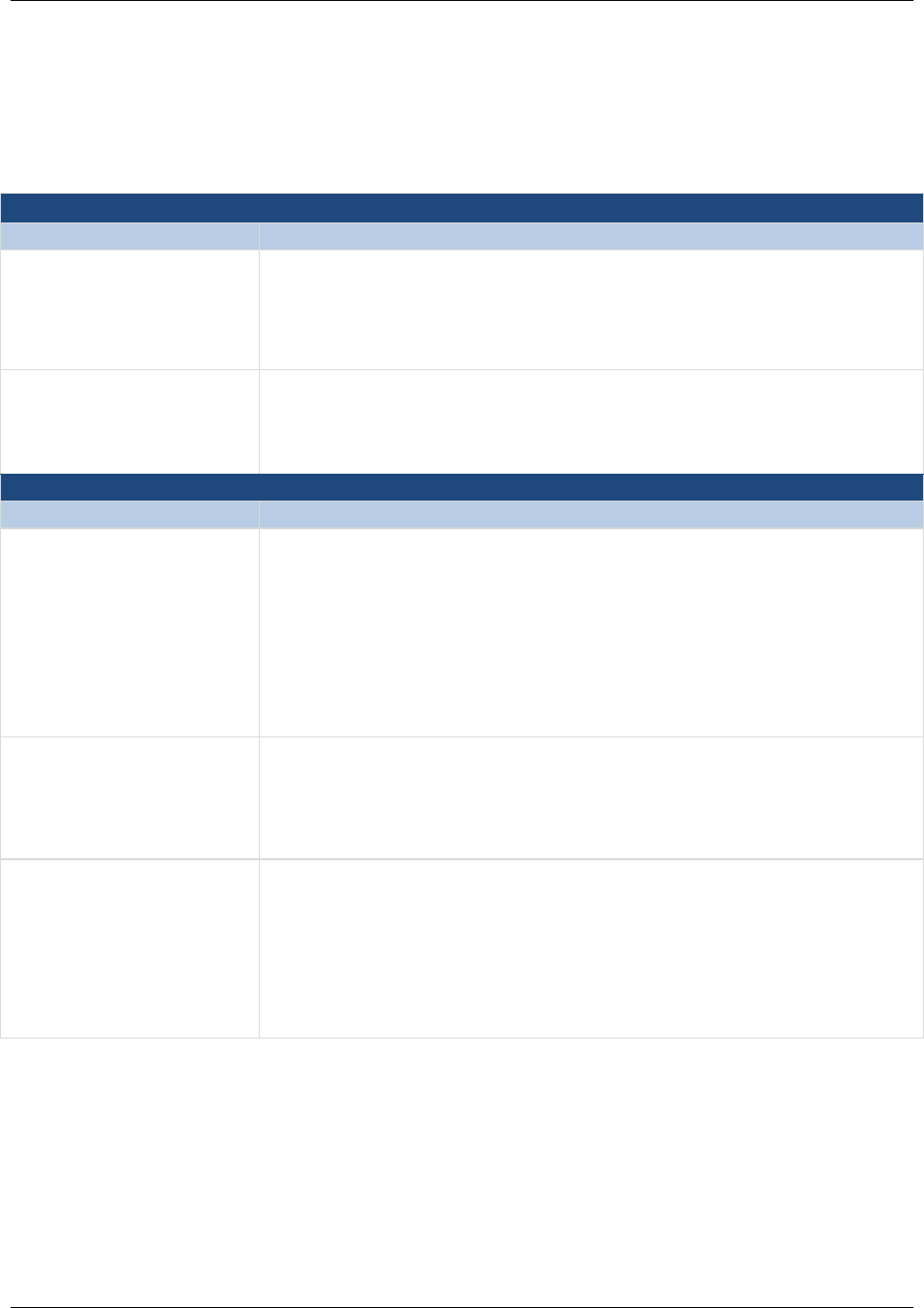
Defense Travel Management Office, FY 2017 – FY 2021 Business Operations Plan, v4 10/2019
Defense Travel Management Office 18
Appendix A: FY 2018 Business Operations Plan Update
DTMO leadership conducts annual strategic reviews to validate goals, objectives and strategic initiatives
and assess performance against milestone targets. Below is the output from the strategic review
reflecting DTMO’s updated Business Operations Plan for FY 2018.
Strategic Goal 1 - Maximize Travel Policy Understanding
Strategic Objectives
Strategic Initiatives
Simplify travel policy
through simple, clear, and
concise policies
•
Review and implement simplified policy changes for Temporary Duty
Travel to support the CFT—Travel acquisition strategy
• Assess the current Government Travel Charge Card usage policy and its
enforcement
Improve DoD travel
processes to reduce
confusion for travelers and
travel administrators
• Identify process reengineering opportunities from the DoD Travel System
Pilot to support the CFT—Travel acquisition strategy
• Expand and improve the Travel Policy Compliance Program
Strategic Goal 2 - Improve the Delivery of Travel Services
Strategic Objectives
Strategic Initiatives
Understand and respond to
customer needs
•
Assess and strengthen Defense travel governance & stakeholder
engagement
• Complete enterprise-wide collection and analysis of travel program
customer satisfaction surveys
• Develop a comprehensive communications plan and the associated
business processes for communicating with DoD travelers, Authorizing
Officials, and travel system administrators
Leverage industry leading
technology solutions
•
Provide functional oversight and support to implement the CFT-Travel
vision to modernize DoD travel
• Redesign the DTMO website using US Web Design Standards to enhance
mobile access and enable an effective social media strategy
Improve travel programs
and program management
• Develop & implement a strategy to improve the DoD Recruit Assistance
Program
• Expand the Travel Certificate Program to include additional travel
management/administration roles
• Implement the SmartPay 3 Plan of Action & Milestones to improve
Government Travel Charge Card program management

Defense Travel Management Office, FY 2017 – FY 2021 Business Operations Plan, v4 10/2019
Defense Travel Management Office 19
Strategic Goal 3 – Optimize Cost Effective Travel
Strategic Objectives
Strategic Initiatives
Maximize visibility into
DoD travel spend to better
understand supplier and
traveler behavior
•
Leverage program area Super Users to expand the deployment of
DTMO’s data visualization and dashboard application in support of
Defense Travel Enterprise Performance Management
• Institute a quarterly Defense Travel Enterprise Performance review
• Integrate new sources of Government and commercially available travel
data into DTMO’s Commercial Travel Information Management
operational and business intelligence platform
Adopt industry best
practices to leverage
strategic sourcing
opportunities
•
Expand and formally institutionalize the DoD Integrated Lodging Program
• Conduct a Dining Program Pilot
• Develop an acquisition strategy for TMC services that supports DoD
Travel System Modernization
• Expand and manage the use of restricted air fares
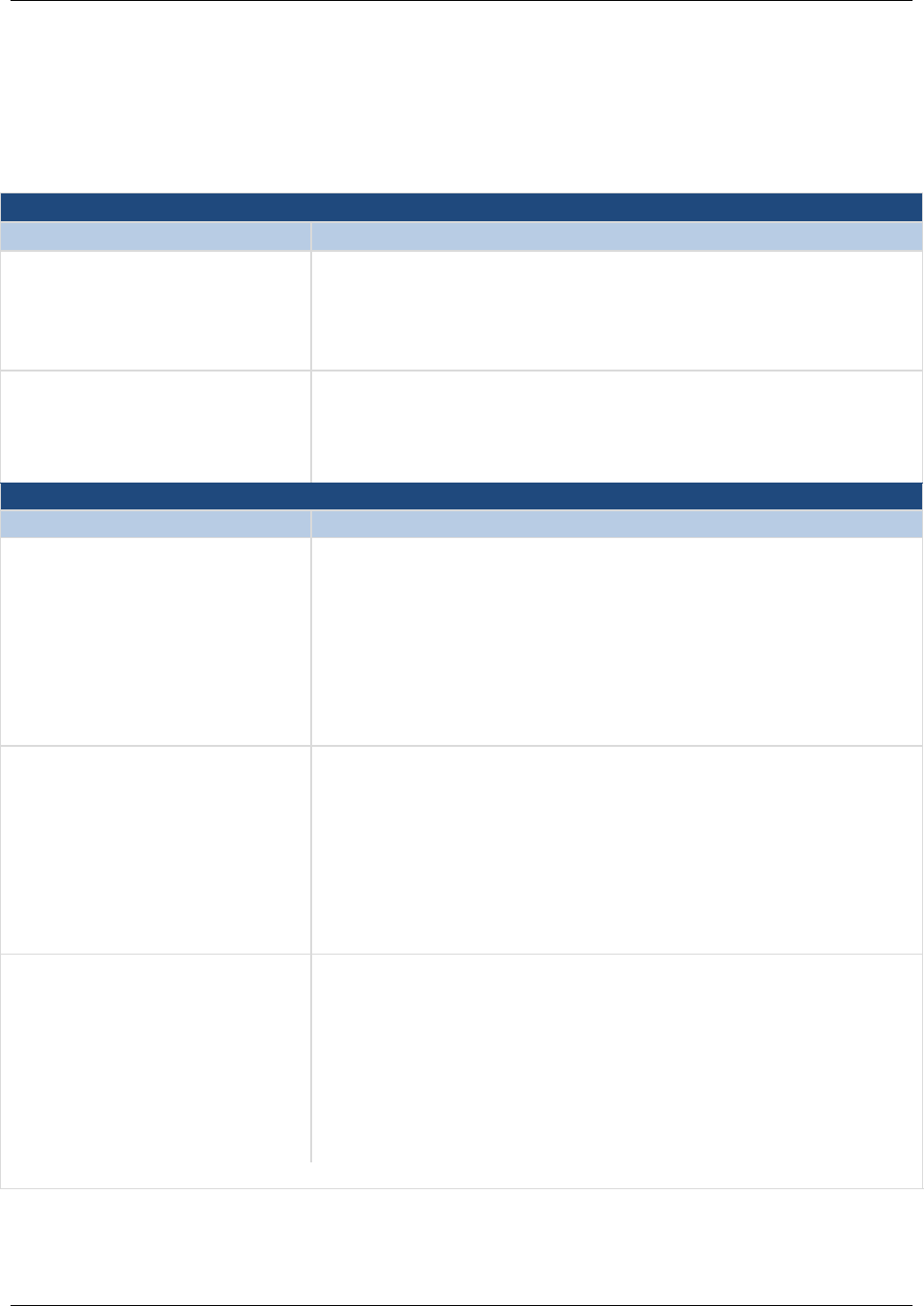
Defense Travel Management Office, FY 2017 – FY 2021 Business Operations Plan, v4 10/2019
Defense Travel Management Office 20
Appendix B: FY 2019 Business Operations Plan Update
DTMO leadership conducts annual strategic reviews to validate goals, objectives and strategic initiatives
and assess performance against milestone targets. Below is the output from the strategic review
reflecting DTMO’s updated Business Operations Plan for FY 2019.
Strategic Goal 1 - Maximize Travel Policy Understanding
Strategic Objectives
Strategic Initiatives
Simplify travel policy through
simple, clear, and concise policies
• Review and implement simplified policy changes for Temporary
Duty Travel to support Defense Travel Modernization
• Assess the current Government Travel Charge Card usage policy
and its enforcement
Improve DoD travel processes to
reduce confusion for travelers
and travel administrators
• Expand and improve the Travel Policy Compliance Program
Strategic Goal 2 - Improve the Delivery of Travel Services
Strategic Objectives
Strategic Initiatives
Understand and respond to
customer needs
• Assess and strengthen Defense travel governance & stakeholder
engagement
• Complete enterprise-wide collection and analysis of travel program
customer satisfaction surveys
• Develop a comprehensive communications plan and the associated
business processes for communicating with DoD travelers,
Authorizing Officials, and travel system administrators
Leverage industry leading
technology solutions
• Provide functional oversight to support Defense Travel
Modernization
• Redesign the DTMO website using US Web Design Standards to
enhance mobile access and enable an effective social media
strategy
• Plan and conduct a SmartPay 3 pilot using Virtual Card Accounts
for travel
Improve travel programs and
program management
•
Develop & implement a strategy to improve the DoD Recruit
Assistance Program
• Implement the SmartPay 3 Plan of Action & Milestones to improve
Government Travel Charge Card program management
• Expand and improve the Military Bus Program
• Establish an Innovation Lab to explore/test new ideas in a practical,
actionable way as a means to creatively solve problems

Defense Travel Management Office, FY 2017 – FY 2021 Business Operations Plan, v4 10/2019
Defense Travel Management Office 21
Strategic Goal 3 – Optimize Cost Effective Travel
Strategic Objectives
Strategic Initiatives
Maximize visibility into DoD
travel spend to better
understand supplier and traveler
behavior
• Leverage program area Super Users to expand the deployment of
DTMO’s data visualization and dashboard application in support of
Defense Travel Enterprise Performance Management
• Institute a quarterly Defense Travel Enterprise Performance review
• Integrate new sources of Government and commercially available
travel data into DTMO’s Commercial Travel Information
Management operational and business intelligence platform
Adopt industry best practices to
leverage strategic sourcing
opportunities
• Expand and formally institutionalize the DoD Integrated Lodging
Program
• Conduct a Dining Program Pilot
• Develop an acquisition and implementation strategy for TMC
services
• Expand and manage the use of restricted air fares
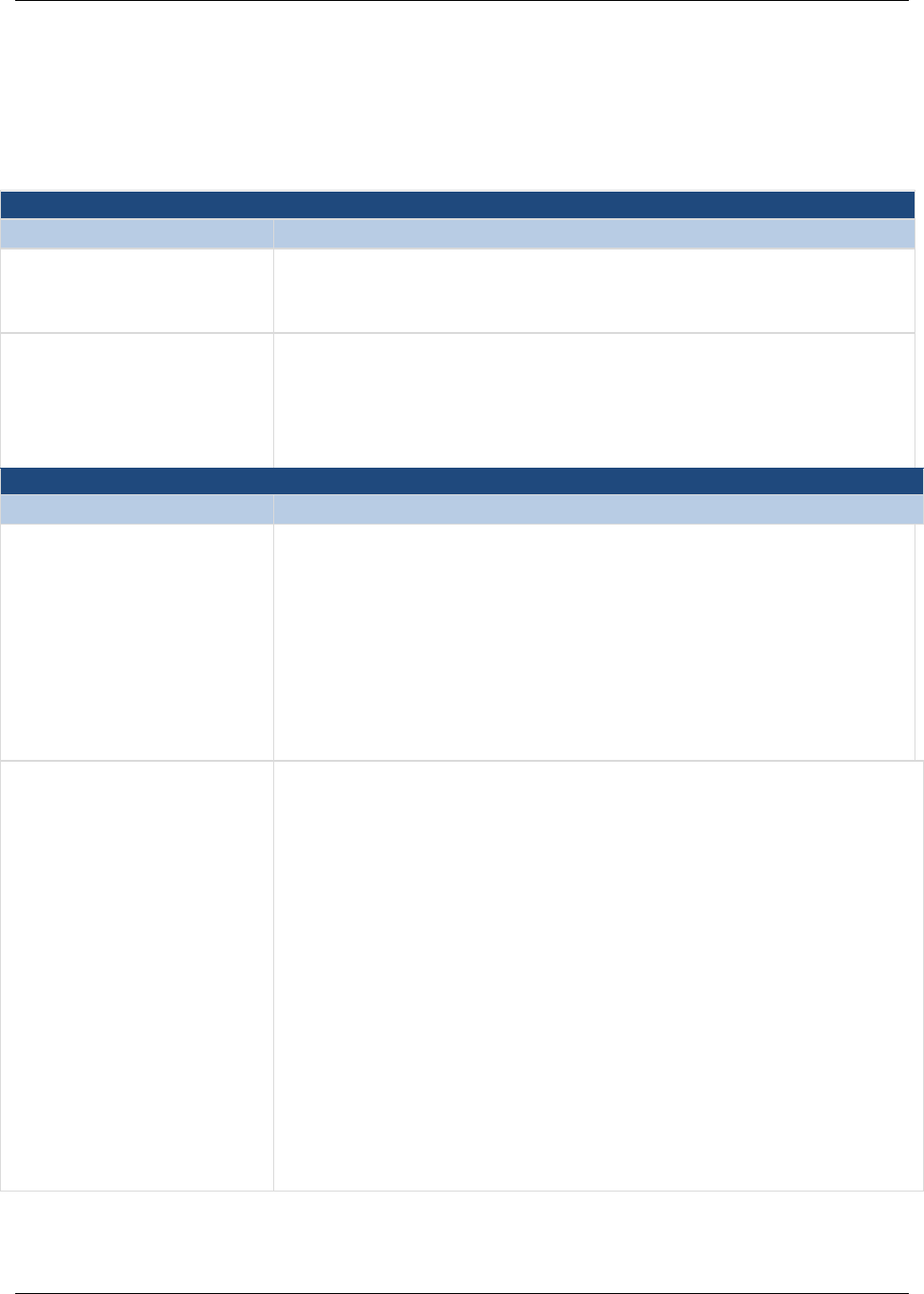
Defense Travel Management Office, FY 2017 – FY 2021 Business Operations Plan, v4 10/2019
Defense Travel Management Office 22
Appendix C: FY 2020 Business Operations Plan Update
DTMO leadership conducts annual strategic reviews to validate goals, objectives and strategic initiatives
and assess performance against milestone targets. Below is the output from the strategic review
reflecting DTMO’s updated Business Operations Plan for FY 2020.
Strategic Goal 1 - Maximize Travel Policy Understanding
Strategic Objectives
Current Strategic Initiatives
Simplify travel policy
through simple, clear, and
concise policies
• Review and implement simplified policy changes for Temporary
Duty Travel to support Defense Travel Modernization
Improve DoD travel
processes to reduce
confusion for travelers and
travel administrators
• Expand and improve the Travel Policy Compliance Program
Strategic Goal 2 - Improve the Delivery of Travel Services
Strategic Objectives
Strategic Initiatives
Understand and respond
to customer needs
•
Complete enterprise-wide collection and analysis of travel
program customer satisfaction surveys
• Develop a stakeholder engagement strategy supported by a
comprehensive communications plan that outlines key business
processes for engaging and communicating with stakeholders.
This will include a focused branding strategy for travel programs
and travel modernization efforts.
Leverage industry leading
technology solutions
• Provide functional and implementation support for Defense
Travel Modernization
• Redesign the DTMO website using US Web Design Standards to
enhance mobile access and enable an effective social media
strategy
• Plan and conduct a SmartPay 3 pilot using Virtual Card Accounts
for travel
• Identify commercial technology to understand and enhance the
customer experience for the traveler
• Develop requirements to establish an interoperability platform
that enhances communication and streamlines processes with
industry partners and other key stakeholders

Defense Travel Management Office, FY 2017 – FY 2021 Business Operations Plan, v4 10/2019
Defense Travel Management Office 23
Improve travel programs
and program management
•
Expand and improve the Military Bus Program
• Establish an Innovation Lab to explore/test new ideas in a
practical, actionable way as a means to creatively solve problems
• Establish a Train-the-Trainer Program in support of Defense Travel
Modernization
Strategic Goal 3 – Optimize Cost Effective Travel
Strategic Objectives
Strategic Initiatives
Maximize visibility into
DoD travel spend to better
understand supplier and
traveler behavior
•
Institute a quarterly Defense Travel Enterprise Performance
review
• Conduct market research and analysis to create the data strategy
and design the infrastructure to support a modernized travel
enterprise
Adopt industry best
practices to leverage
strategic sourcing
opportunities
•
Expand and formally institutionalize the DoD Integrated Lodging
Program
• Conduct a Dining Program Pilot
• Develop an acquisition and implementation strategy for TMC
services
• Expand and manage the use of restricted air fares
